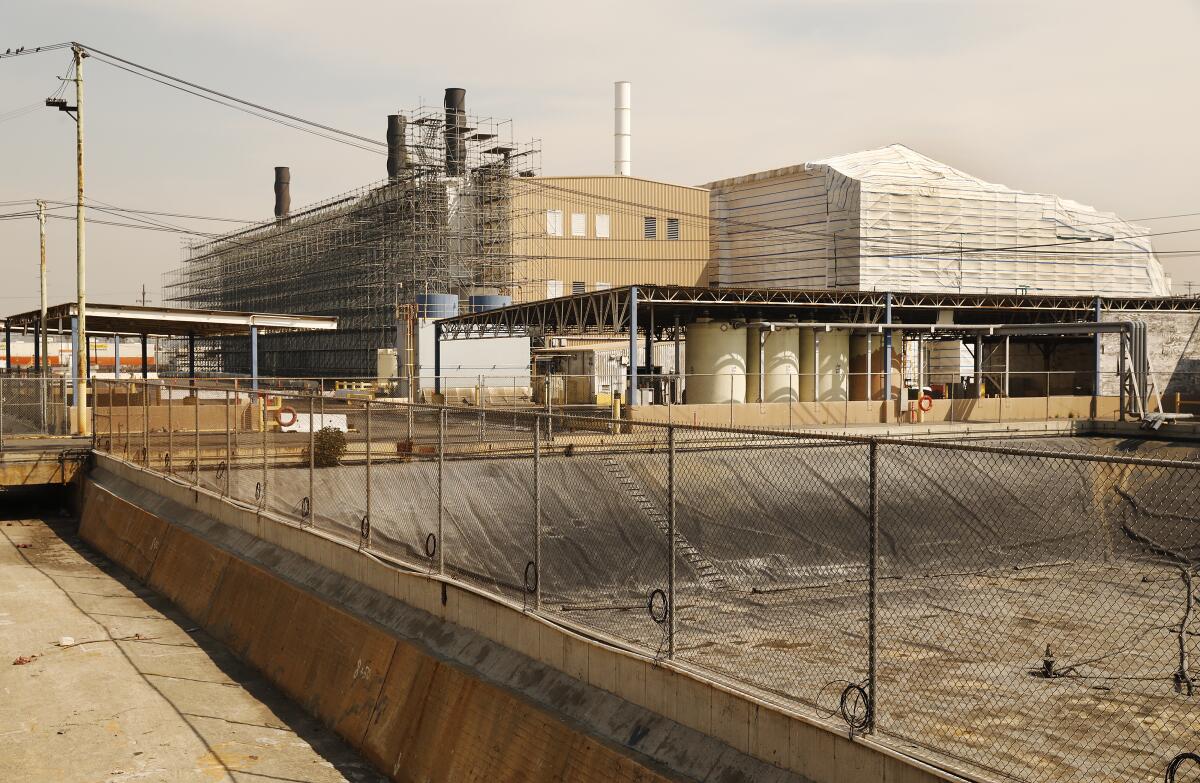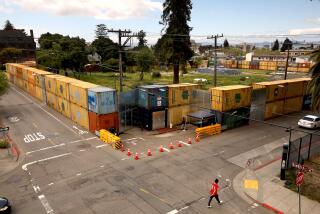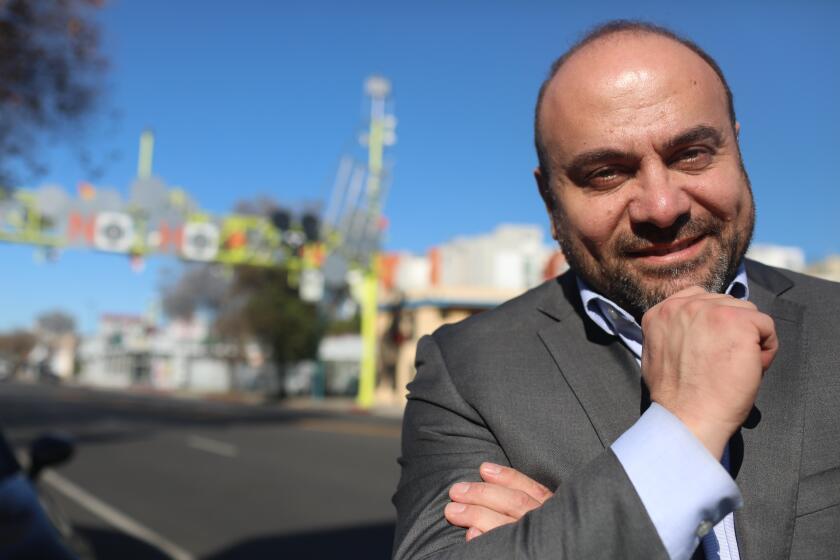Editorial: California failed the communities around Exide. This cannot happen again

A federal bankruptcy judge’s decision to let Exide Technologies abandon its shuttered battery recycling plant in Vernon only compounds the injuries the plant inflicted on the surrounding community.
Residents, state regulators and environmental experts had pleaded with Judge Christopher Sontchi in Delaware to block the consent decree Exide negotiated with the U.S. Department of Justice, to no avail. The deal approved Friday provides just a few million dollars to clean up what Exide left behind — a tiny amount considering that the plant’s toxic contamination stretches into the surrounding neighborhoods, exposing residents to brain-damaging lead, cancer-causing arsenic and other pollutants.
It’s an outrage that a company can rake in profits for decades while polluting the community and then be allowed to walk away from its responsibility to clean up the mess, leaving state taxpayers to pick up the tab.
Gov. Gavin Newsom said the state will appeal the decision, but it’s unclear how much money the state can realistically recoup from the company. Too bad California’s leaders didn’t fight this hard before Exide’s bankruptcy settlement.
The fact is, the state’s environmental agencies allowed Exide to happen. The company operated with a temporary permit and outdated air pollution controls for 30 years, despite repeated air-quality and hazardous-waste violations. The state did not require adequate financial assurances to clean up the contamination, even though Exide’s financial condition was precarious — the company had already declared bankruptcy twice since 2002. Even Sontchi questioned California’s failure to act with urgency.
California failed the communities around Exide. This cannot happen again. Newsom and the Legislature must adopt and enforce policies to ensure that companies aren’t allowed to pollute communities or to abandon their clean-up responsibilities if they do.
They can start by passing a law that gives environmental liens for the cleanup of hazardous waste priority over other creditors in bankruptcy proceedings. Such laws in other states protect taxpayers and communities from getting stuck with the expense of cleaning up toxic sites when companies go belly up. That’s important because bankruptcy laws don’t necessary put environmental claims first in line for payment, making it too easy for companies to abandon their financial responsibility for polluted properties.
It would be far better if California didn’t wait for bankruptcy proceedings to try to claw money from polluters. The Department of Toxic Substances Control, which regulates hazardous waste sites, has the power to require that companies provide adequate financial assurances to clean up contaminated properties if they go under. Yet watchdogs have warned time and again that the agency is not doing so, leaving the state vulnerable to another Exide-like bankruptcy.
Nor can California prevent more Exides from occurring without a major overhaul of the DTSC. The agency has failed to properly regulate polluters and enforce the state’s environmental protection laws, leaving too many communities — particularly low-income communities of color — vulnerable.
Nevertheless, Newsom last month killed one of the few comprehensive DTSC reform bills to pass the Legislature in recent years. Assembly Bill 995 incorporated many of the recommendations of an independent review panel created to help right the troubled agency. The bill would have installed a governing board to provide more transparency into and oversight of the opaque regulatory agency. It would have also tightened financial assurance requirements and set permitting and fee rules.
Newsom wrote that the bill wasn’t comprehensive enough and pledged to work with the Legislature next year on fiscal and governance fixes for the DTSC. But Newsom is the latest in a long line of governors who have talked about reforms but failed to make the regulatory agency function as it should.
Exide is the poster child for all those failures. The state cannot afford to ignore the lessons of the debacle in Vernon.
More to Read
A cure for the common opinion
Get thought-provoking perspectives with our weekly newsletter.
You may occasionally receive promotional content from the Los Angeles Times.










